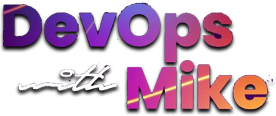DevOps Career Roadmap for Beginners – You wont be lost after watching this (2025)
You might be wondering where you are currently in your DevOps and cloud computing journey. You have been provisioning services, creating resources on the Amazon Web Services platform. Maybe you’re writing Terraform scripts, launching servers, and still don’t have any idea what it is you’re doing or how to connect the dots.
If you’re currently studying DevOps and you’re wondering why you’re using certain services, I want to explain the main reasons why we talk about DevOps or cloud computing. Why do you think companies are moving to the cloud? Why do you think many companies are posting DevOps and cloud-related roles?
The first thing to keep in mind is that most companies want the ability to access on-demand services. Rather than incurring high costs to set up infrastructure to meet project requirements, they prefer provisioning resources on cloud platforms that operate on a pay-as-you-go model. Instead of buying expensive compute machines or heavy resources, companies use platforms where they only pay for what they need.
Cloud providers offer flexibility, enabling companies to build applications and meet business requirements more efficiently. This is why most companies are moving their resources to the cloud.
Now, regarding the cloud, consider this: How do we provision services? What are the foundational services available on these cloud platforms? Let’s take, for example, Amazon Web Services (AWS). As a cloud platform, what foundational services does AWS offer? What about Microsoft Azure?
By “foundational services,” I mean the core services that companies advertise to their users, which can meet critical application requirements. These include:
- Managing users (developers, DevOps engineers, auditors, etc.)
- Creating virtual networks (private clouds) within the cloud
- Managing compute resources at scale
- Handling storage requirements for terabytes or petabytes of data
- Securing resources on the cloud
Once you understand these foundational services, the next question is: How do we secure them? If we provision networks, compute resources, databases, and storage, how do we ensure their security? Securing resources in the cloud is a crucial requirement, and as a DevOps engineer, you must master this skill.
Additionally, most companies have multiple accounts on these platforms, with hundreds or even thousands of users. How do we centrally manage these accounts, ensure compliance, and govern the environment effectively? This is where governance services like AWS Control Tower, AWS Organizations, or Azure Active Directory come into play.
Another need for companies is reusable and reproducible infrastructure across environments. This is where infrastructure automation comes into play. Companies want systems that automate the creation of resources in production environments. As a cloud aspirant, you must understand infrastructure provisioning as code (IaC), enabling you to automatically deploy resources using tools like Terraform.
Once you’ve mastered provisioning, securing, and managing these foundational services, the next step is learning Continuous Integration (CI) and Continuous Deployment (CD). Companies need systems that ensure the seamless integration of code from developers to production environments. You must understand CI/CD tools that automate the creation and deployment of applications and infrastructure.
Furthermore, many companies are adopting microservices for their scalability and language independence. You should understand technologies that manage container-based services, including creating, monitoring, and scaling containers using tools like Kubernetes.
When you’ve mastered these concepts—foundational services, security, IaC, CI/CD, and containers—you’ll gain the practical experience necessary to thrive in a cloud environment.
Finally, after mastering these concepts, spend time doing hands-on exercises. Many cloud platforms provide resources to help you practice foundational services, IaC, CI/CD, and container orchestration. The more you practice, the better you’ll be at applying these skills.
Some people wonder if they’re ready for a job or an interview. If you’ve gained the right skill set, you’ll find interviews less daunting. Interviewing is itself a skill, requiring you to articulate your experience and expertise effectively.
Spend time preparing your resume and applying for jobs on platforms. Start taking interviews—even if you’re not 100% confident. As you go through multiple rounds, you’ll understand business requirements better and improve your knowledge of why specific services are used.
With consistent effort and preparation, you’ll be able to land a good job. Check out other videos on my channel to help you prepare for DevOps and cloud-related interviews and enhance your skills.

